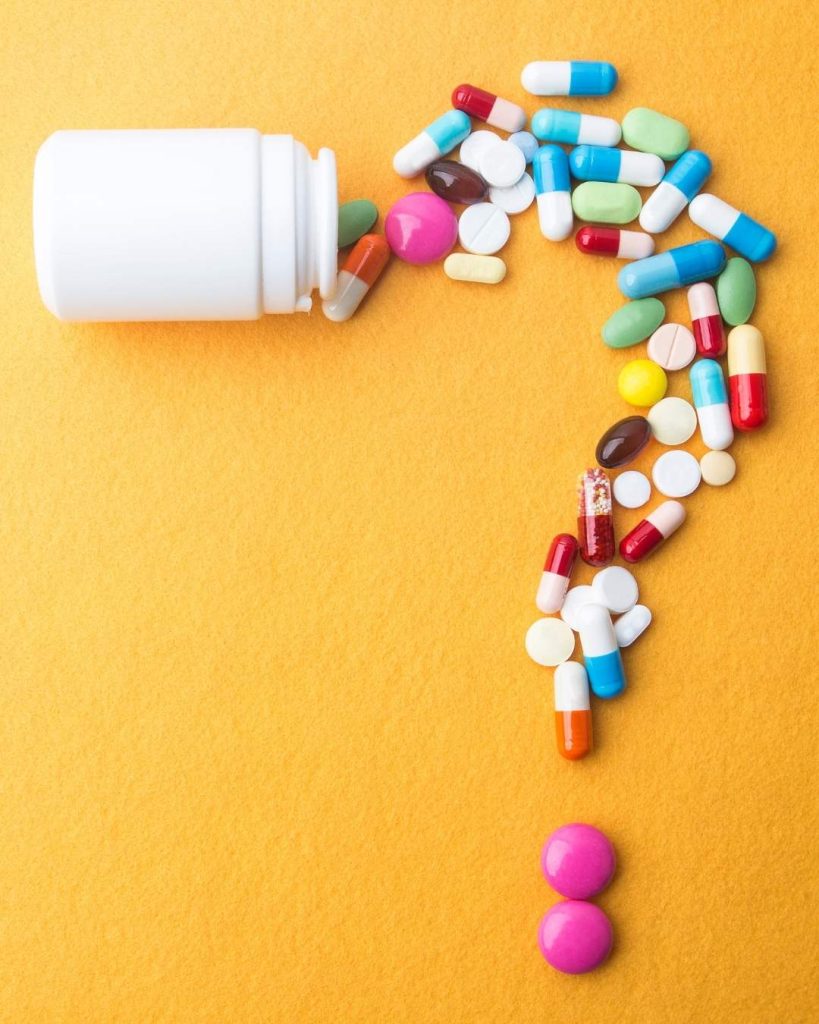In 2020, about 315,000 pharmacists in 88,000 retail drug stores dispensed almost 4.5 billion outpatient prescriptions to more than 260 million Americans. These prescriptions covered 50 billion pills, at a cost to the public of more than $350 billion. This represented about 8.5% of total U.S. health care costs that year, which came to a whopping $4.1 trillion.

Fifty years ago, television ads about medicine were limited to cough syrup and aspirin (the iconic Speedy Alka Seltzer character was an advertising coup.). Today, the airwaves are dominated by commercials for prescription medications, most with potentially serious, including deadly, side effects.
Conventional medical theory posits that there are “main” effects and “side” effects of medications. In truth, “side effects” are to be found nowhere in Nature. All effects are main effects, and all effects of a drug should be considered its main effects as well – exerting major influences on the body and impacting our health. Pulling the Physicians Desk Reference from the shelf and randomly picking one drug listed among the thousands listed in that book discloses the following side effects: pulmonary embolism, liver dysfunction, partial or complete loss of vision, migraines, depression, edema, rash, jaundice, nausea, thrombophlebitis, changes in appetite, nervousness, fatigue, lower back pain, loss of scalp hair, itching, dizziness and a warning not to use the drug during pregnancy. In addition, there are those symptoms that arise when this one medication interacts with others. These are all commonly described as “side effects.” The side effects are almost always treated with drugs, which exerts side effects of their own. In short order, a host of symptoms appear as drugs interact. Physical problems multiply and spiral out of control. Eventually people lose the ability to clearly recognize the causes behind their original symptoms, relegating themselves to passive participants in their own recovery. And, sadly too often, it’s not about “recovery” at all but simply disease management.
Most of us have been raised in a culture that encourages the worst eating and lifestyle habits. From the earliest years onward, our immune systems are compromised through the accumulation of antibiotics and hormones that we have taken in through the consumption of chicken, beef and dairy products; in general, our symptoms are suppressed rather than addressed; we eat poor-quality food; we eat too much food; we consume chlorinated water, air and ground pollutants, artificial colors and preservatives, herbicides, fungicides, pesticides and ingest numerous carcinogens that are spun off as “side effects” of our food and industrial manufacturing processes… the list is familiar and uncommonly long.
From the moment of conception onward, the body does its best to walk through life under these gale-force winds of adversity. And as the body begins to falter, as it eventually must, it then becomes subject to still further chemical and medical interventions: from routine x-rays and antibiotics, progressing to invasive surgeries, radiation, chemotherapy, organ removal and the artificial replacements for living tissue.
This isn’t to say that we should not avail ourselves to antibiotics and other medications and surgical procedures. Most of us have been beneficiaries of their use. And there is that aspect of technology that performs miracles re-attaching limbs and reestablishing sight and sound, and the pace of technological changes quickens and delights. But for the first time in history, lifestyle diseases like diabetes, heart disease, obesity and some cancers kill more people than communicable ones, and the cost in managing them (as opposed to curing them) is crippling – financially, physically and emotionally.
People often begin practicing a holistic diet and lifestyle after having been diagnosed with one specific, often serious, illness. But rarely are they experiencing just that one physical difficulty. They might also be suffering with such symptoms as low back pain (quite often indicating kidneys), skin rashes, fitful sleep, poor appetite, inflammation, depression… . Most people then adapt themselves to living with these symptoms, believing them to be either simply part of the aging process or of minor consequence compared to their more serious diagnosis. The beauty of holistic lifestyle practices is that, as we change our diet and lifestyle, many symptoms can begin to diminish across the board, simultaneously. The whole body responds favorably to the same corrective measures: rashes diminish, sleep deepens, appetite returns, back pain subsides, energy levels increase. Such are the “side effects” of a holistic lifestyle and dietary practices.
No one size fits all when it comes to dietary needs, but we do share a common heritage. We have evolved over millions of years under conditions of natural light, pure water, and whole, unadulterated foods. Environmental influences that range over such a vast span of time have fashioned the human body like the hands of a sculptor, and we can safely assume that the very essence of who we are has been defined by that relationship. Any deviation at all from this natural order will invite a measure of stress and, eventually, disease.
Many of us, by necessity, have set for ourselves the goal of regaining our health. But a healthy body should not be an end in itself. After all, health is our birthright, and we are meant to use our health to pursue our goals.
___________________
Jeffrey Reel is a writer and lecturer living in Hartland, Vermont, and serves as the General Manager of the Rutland Area Food Coop. He is the author of Uncommon Sense: The War on Hunger and Other Myths.

Thank you Jeffrey, for this fine article and for making our Coop thrive again, with a fine inventory, a spiffy well organized store, helpful staff and overall good vibrations. A community treasure!